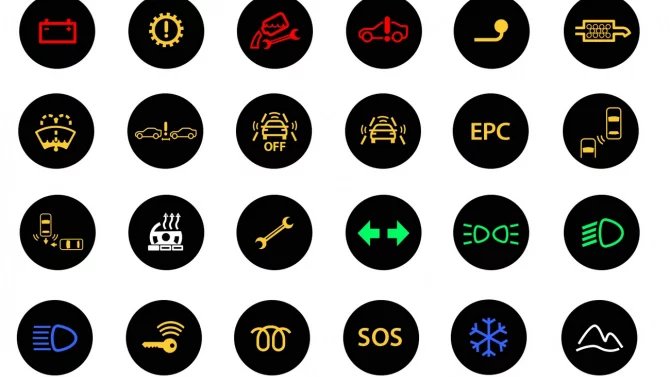...
By Marek Petrus
PRAGUE, March 8 (Reuters) - The Czech central bank (CNB) on Thursday announced a cut in its inflation target to around 2 percent from 2010, saying the country's economy had shed its status as an emerging market.
The CNB, a pioneer of inflation targeting in post-Communist central Europe, also unveiled other moves aimed at boosting transparency of monetary policy-making to bring it in line with peers in large industrial countries.
The bank has a track record of undershooting its current goal for the annual consumer price index (CPI), which is 3 percent with a tolerance of 1 percentage point either side.
Governor Zdenek Tuma told a news conference that from 2010 the CNB would aim at the 2 percent target midpoint over the four to six quarters required for changes in monetary policy to be felt in the economy.
"The new target does not alter the interest rate outlook for the near-term," Tuma said. "Announcing the change well in advance will spread out and minimise the costs of potentially having to push inflation to a lower level."
The CNB would keep a tolerance range of up to 1 percentage point on either side the new target's midpoint.
The change was not entirely unexpected as some policymakers have floated the idea of a target reduction. But markets had deemed any decision unlikely before the government and the central bank agree a new road map for adoption of the euro.
The crown showed little if any reaction to the announcement, holding this week's range around 28.150 to the euro .
But Tuma said the decision reflected the bank's outlook for sustained low inflation in the economy, rather than any expectations of when the country could join the euro zone.
"We are taking into account that the Czech Republic is a country with low and stable inflation. I no longer consider us to be an emerging market economy," said Tuma.
He said no new euro adoption target date was currently on the table and the CNB would with all certainty keep autonomous monetary policy beyond 2010 after a previous 2010 goal was abandoned last year because of an excessive fiscal deficit.
But he added the implication of a lower than 3 percent target is that it gives the central bank more room to meet one of the key rules governing euro adoption.
SAME AS RIKSBANK
The CNB is bringing its policy objective into line with the Riksbank, the central bank of Sweden, a fellow EU member staying outside of the bloc's currency zone.
It also resembles that of the Bank of England, the Czech bank's role model to introduce a formal inflation targeting regime in 1997, which has a 2 percent inflation target. The European Central Bank seeks to keep consumer price growth below but close to 2 percent.
The CNB also decided to join Riksbank, the Reserve Bank of New Zealand and Norway's Norges Bank in revealing its outlook for interest rates as a signal on future policy.
It will do so from next year, publishing the forward rate path as a fan chart. So far, the CNB has signalled only the direction and pace at which it sees interest rates moving over the forecast horizon of up to 18 months.
From 2008, the CNB will also start publishing a roll call of policymakers' votes on rates, instead of the overall count of votes cast for each proposal as is its current practice.
The Riksbank, the Bank of England, the U.S. Federal Reserve as well as central banks of neighbouring Poland and Hungary all publish their policymakers' voting records.
The CNB will also cut the number of interest rate-setting meetings to 8 per year. Now it reviews policy every month.
((FOR FACTBOX ON COMMUNICATION PRACTICES OF FOUR INFLATION-TARGETING CENTRAL EUROPEAN CENTRAL BANKS, CLICK ON [ID:nL20288603]))
((Editing by Gerrard Raven; Reuters Messaging: rm://marek.petrus.reuters.com@reuters.net; e-mail: prague.newsroom@reuters.com or marek.petrus@reuters.com; Tel: +420 224 190 477))
Keywords: CZECH CENTRALBANK/




 Řidička uvízla na železničním přejezdu, rychlík ji minul jen o kousek
Řidička uvízla na železničním přejezdu, rychlík ji minul jen o kousek
 Brzdná dráha delší až o deset metrů. Hlavně levné pneumatiky z východní Asie jsou pro řidiče rizikové
Brzdná dráha delší až o deset metrů. Hlavně levné pneumatiky z východní Asie jsou pro řidiče rizikové
 Test Renault Symbioz: S novým hybridem jezdí svižně a se spotřebou legendárního té-dé-íčka
Test Renault Symbioz: S novým hybridem jezdí svižně a se spotřebou legendárního té-dé-íčka
 Kdo nezvládne tento kvíz za plný počet, ten si dost možná auto zničí. Kontrolky jsou totiž základem komunikace mezi autem a řidičem
Kdo nezvládne tento kvíz za plný počet, ten si dost možná auto zničí. Kontrolky jsou totiž základem komunikace mezi autem a řidičem
 Nákup ojetiny jako rizikový podnik. Každá druhá ojetina ihned potřebuje nečekanou opravu za mnoho tisíc
Nákup ojetiny jako rizikový podnik. Každá druhá ojetina ihned potřebuje nečekanou opravu za mnoho tisíc
